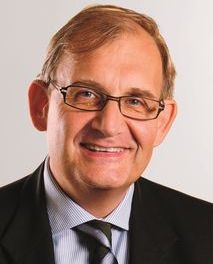Degree awarded
Master of Science (MSc) in Finance with 3 specific orientations: "Asset and risk management", "Corporate finance", "Financial entrepreneurship and data science"
Master of Science (MSc) in Finance with 3 specific orientations: "Asset and risk management", "Corporate finance", "Financial entrepreneurship and data science"

Professor Michael Rockinger, Director of the Master in Finance (MScF)
The Master in Finance ranks among the best finance programs in the world, according to the Financial Times ranking. This Master is constantly adapting to the needs of companies and financial institutions, as well as to the interests of students.
Each year we welcome around 200 students who can choose from three specializations (orientations):
The "Corporate Finance" orientation aims to provide you with an understanding of the determinants of value creation in corporate finance. The courses in this orientation provide the tools needed to carry out an in-depth valuation analysis and, more generally, to carry out a financial analysis of companies, the choice of different financing alternatives, cash management and the management of international companies. Advanced courses cover mergers & acquisitions, private equity, venture capital, corporate restructuring and bankruptcy.
The "Financial Entrepreneurship and Data Science" orientation provides you with a solid foundation in finance and an introduction to finance-related information technology and data science. The aim is not to train programmers, but to provide the knowledge needed to manage programs for implementing tools in the fields of fintech, crowdfunding, robo-advice, chatbots and distributed ledgers. You will also learn about machine learning, such as classification algorithms, deep learning and natural language processing, to name but a few.
The "Asset and Risk Management" orientation provides you with highly quantitative skills. It includes courses on empirical methods in finance, quantitative asset and risk management, as well as alternative investments and banking.
Our students find jobs in banks, insurance companies and consulting firms, among many other possibilities. Some of our students have gone on to found start-ups.
The quality of the program is also recognized by the CFA, CAIA and GARP organizations, of which the Master in Finance is a partner. The Master's courses cover a very large part of the curriculum required by these prestigious certification bodies, offering students excellent preparation, as well as scholarships under the CFA partnership. HEC Lausanne was the first university in the world to obtain a partnership with all three organizations.
Students in the Master of Finance program regularly distinguish themselves at the CFA Institute Research Challenge, even winning the global final in 2018. At European level, our students won the finals in 2019 and 2020.